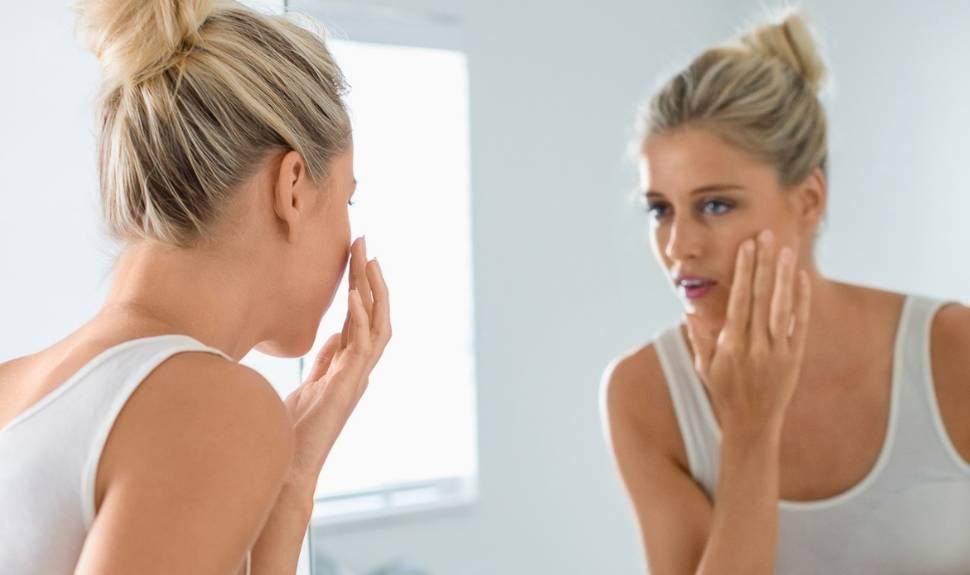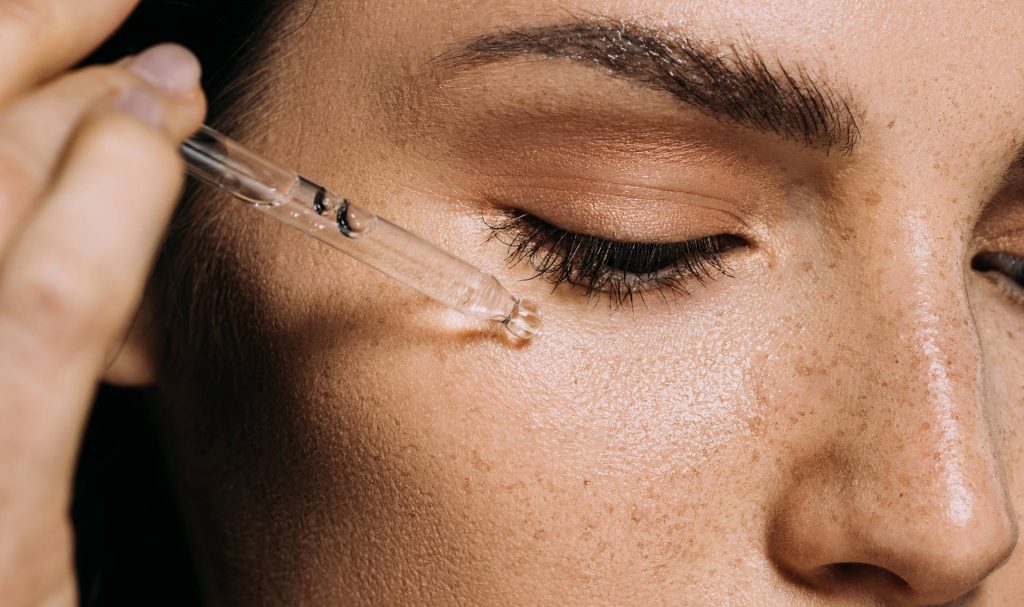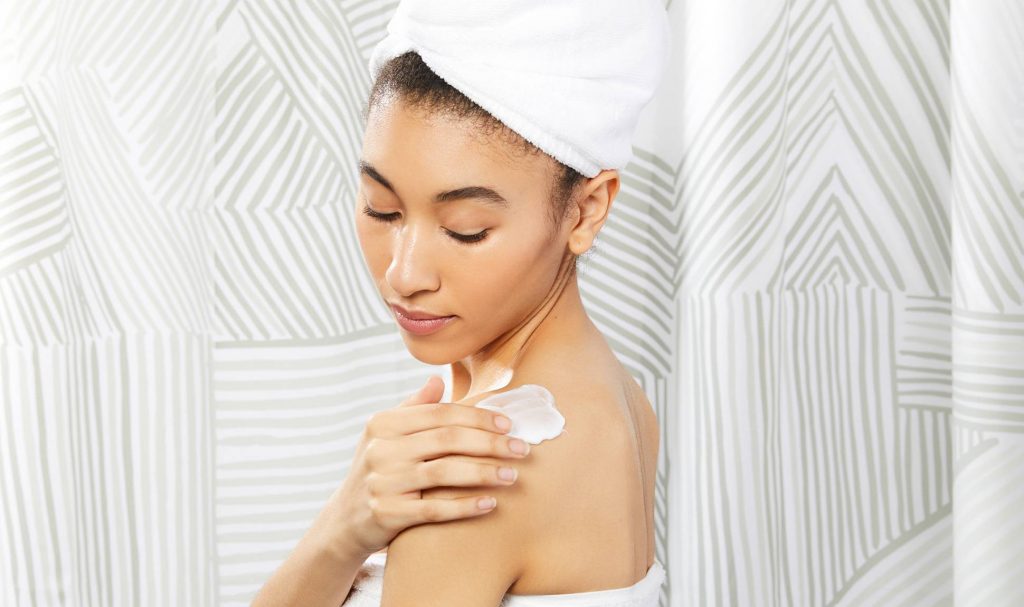While many of us can head over to our local drugstore—or log onto our favorite online retailer—to find new skin care and beauty products, those of us with sensitive skin need to be a little more particular about what we’re picking up. This is because sensitive skin can be easily thrown off by anything from the weather to a new product formula. The best skin care routine for sensitive skin is (simply put) the one that works for you. But, if you’re just getting started, allow us to help. Below we share a great way to start a skin care routine if you have sensitive skin.
WHAT IS SENSITIVE SKIN?
“Sensitive” is a sensation with a definition that may differ depending on who you ask. This makes it a bit difficult for a lot of people to grasp what exactly sensitive skin is. According to the International Journal of Cosmetic Science, sensitive skin is a “condition of subjective hyper-reactivity to environmental factors…[generally] substances that are not commonly considered irritants are involved in this abnormal response.”
Did your eyes just swim reading that? Here’s putting it in layman’s terms. Basically, sensitive skin is an overreaction to factors that usually don’t (or shouldn’t) irritate most people’s skin. This can be anything from certain moisturizers to even a type of metal used in a bracelet.
It’s also important to note that sensitive skin isn’t necessarily something you experience from a young age. Any person at any age can begin to suddenly experience sensitive skin, no matter what other skin predispositions you may have.
WHAT CAUSES SENSITIVE SKIN?
Although there may not be one set causation behind sensitive skin, there are a lot of theories as to why it pops up. At first, experts in the field supposed those experiencing this condition to be a smaller demographic that for some reason had unexplained reactions to normal products. As time went on, it was revealed that sensitive skin was more widespread across the globe. In conjunction with the increased amount of cases, the amount of possible theories increased as well.
Some studies found that there may be a correlation between weakness in the epidermis (the outermost layer of the skin) and how reactive the skin was in contact with external forces. Age has also been thought to cause skin sensitivity. A few scientists discovered that people in different life stages experienced different levels of sensitivity. However, despite age clearly having an effect on sensitivity, reports filled with contradictory information have come around regarding which age demographic—younger or older—is more likely to experience sensitive skin. One study following subjects’ reaction to different soaps and detergents found higher reactivity in those more advanced in age whereas other tests found the exact opposite—lower susceptibility in the elderly and higher in the young. Where the skin is on your body may also determine its susceptibility to sensitivity, the face being one of the most commonly reported areas of skin sensitivity.
Of course there are plenty of theories which have slowly been debunked over time. Women, for example, were previously deemed to be more prone to sensitive skin than men. This was attributed to the fact that the epidermis tended to be thinner in women than their male counterparts. Later studies tossed this claim aside as more men began to report sensitive skin than women, blurring any concrete ties between sensitive skin and gender.
DO I HAVE SENSITIVE SKIN?
Before we can get into a skin care routine, it’s important to determine if you do indeed have sensitive skin. Unfortunately, this isn’t as black and white as it may seem. According to board-certified dermatologist and Skincare.com consultant Dr. Dendy Engelman, “There isn’t a definitive checklist that dermatologists use to define sensitive skin.” However, there are a few tell-tale signs that can help you determine if this is your skin type. If you have reactive skin that becomes red, blotchy, stings, or burns when exposed to certain elements—like the sun’s UV rays—or certain skin care formulas—like scented soaps—it is likely sensitive. Other signs of sensitive skin may include itching, burning, and even feeling some sort of tight sensation in the area that’s irritated. Keep in mind that these reactions could occur for reasons other than your skin being sensitive.
WHAT TO LOOK FOR IF YOU SUSPECT YOUR SKIN IS SENSITIVE
If your skin shows that reactivity—and you suspect it may be sensitive—there are a few things you’ll want to look (and look out) for. First off, try to use products that are fragrance-free and non-comedogenic. Non-comedogenic means the formula will not clog your pores, which is key with all types of skin not just sensitive. Finally, do your best to look for gentle formulas that are safe for sensitive skin specifically and keep your routine as basic as possible so as to not introduce any possible irritants.
SKIN CARE ROUTINE FOR SENSITIVE SKIN
Cleanser: Whether you have the most resilient skin on the planet or you burn within a few moments of being outside in the sun, your skin care routine should always start with cleansing. You can have the best products that money can buy, but if you are layering them on top of built up dirt, pollution, makeup, and other impurities that can linger on the skin’s surface, they aren’t going to do you much good. What’s more? By not cleansing you risk all of those aforementioned impurities clogging your pores, which can lead to everything from breakouts to dull skin tone to irritation. So, start your sensitive skin care routine off with a gentle cleanser for sensitive skin and one we can’t get enough of is micellar water. Utilizing micelle technology, these no-rinse cleansers work to attract, trap, and remove impurities from the skin’s surface. It is a great option for those who have hard water at home since the alkaline pH of the water can cause skin to become dehydrated and dry. We share a few micellar water options to choose from here.
Deodorant: We know it’s easy to forget your armpits since they’re not the most prominent part of your body. But never forget to give unseen skin a little love. Just like other skin care products, people with sensitive skin can have rather unpleasant reactions to the sticks they swipe under their arms. But worry not—many companies make product lines specifically catered to those in need of a gentler touch. We rounded up our favorite deodorants and antiperspirants for sensitive armpits, here!
Alcohol-free toner: Sweeping toner over your skin might seem like a superfluous step, but it’s well worth the few extra seconds of effort. Toners are often overlooked in skin care routines, but can actually offer a wide range of benefits, including balancing the skin’s pH levels post-cleansing, soothing the skin, and removing any lingering bits of residue or dirt. Sensitive skin types can benefit from using a toner, but should steer clear of those formulated with alcohol or astringents. Instead, reach for one that’s mild with calming ingredients, like the Kiehl’s Cucumber Herbal Alcohol-Free Toner. The formula is enhanced with the finest herbal extracts to leave the skin feeling soft, clean, and toned.
Moisturizer: While you skin is still just a bit damp, reach for a non-comedogenic, fragrance-free cream-, gel-, or water-based moisturizer. Depending on what your specific sensitive skin needs, you may find you need a thicker formula. The American Academy of Dermatology even recommends slapping on that moisturizer every morning in order to assist in the prevention of further sensitivity and reducing irritation.
Serums: Much in the same way that defining “sensitive skin” can differ from person to person, laying out exactly what a “serum” is can be a bit of a blurred affair. Essentially, a serum is a product that can be applied in between cleansing and moisturizing in order to make sure skin laps up essential ingredients. Serums are good additions to any skin care routine in that they can be full of extra moisturizing ingredients and can target specific skin concerns such as wrinkles, fine lines, dark spots and more. For the sensitive-skinned, we recommend the Lancôme Advanced Génifique Youth Activating Serum which is not only gentle on any type of skin, but was created to act on key signs of youth. It’s quite the package in every sense of the word!
Sunscreen: If there’s one thing sensitive skin needs during the day it’s protection from the sun’s harmful rays. While we recommend seeking shade and wearing protective clothing during long periods spent outdoors, we know it’s not always possible. Reach for sunscreens like Vichy Idéal Capital Soleil SPF 50. This sunscreen with broad-spectrum SPF is lightweight, fragrance-, oil-, and paraben-free, non-comedogenic, and finishes sheer and matte.




